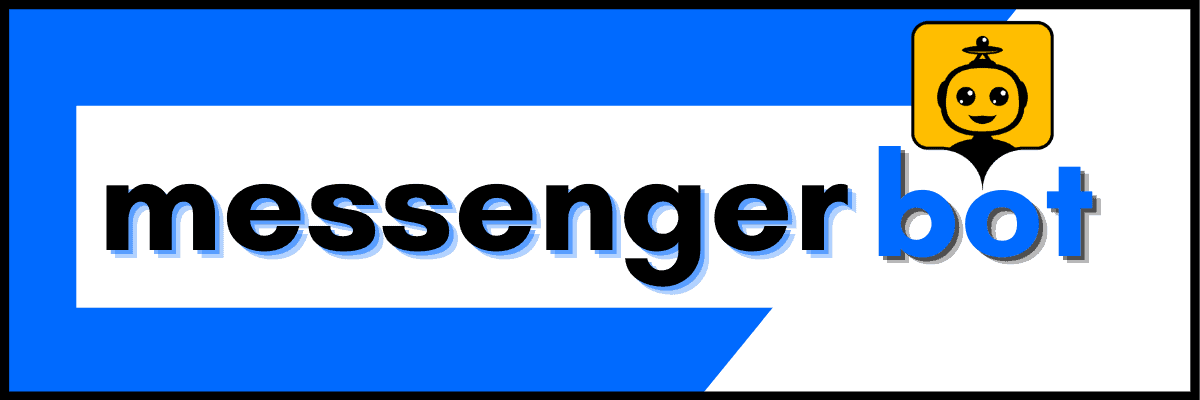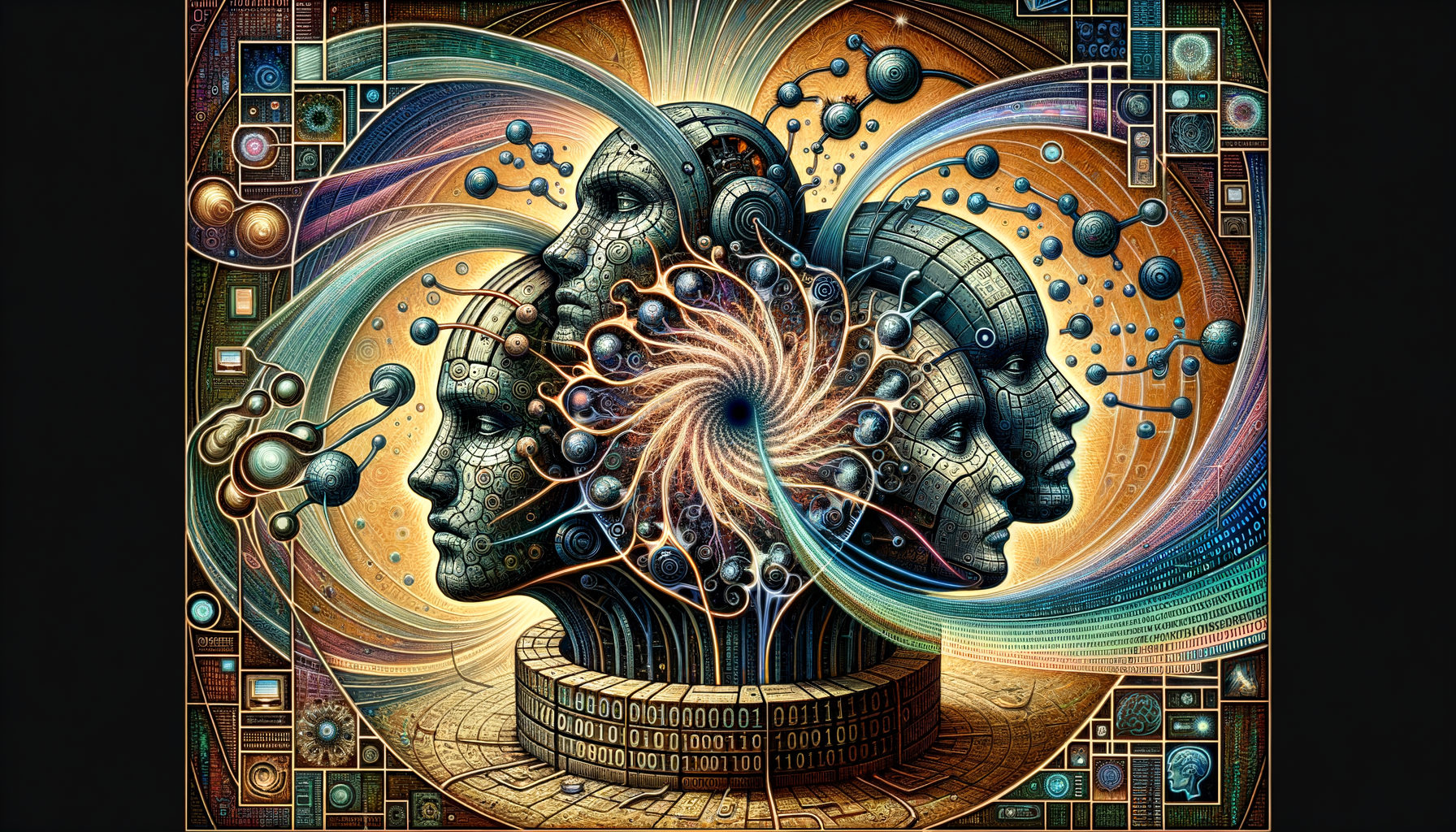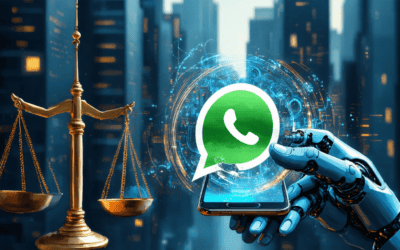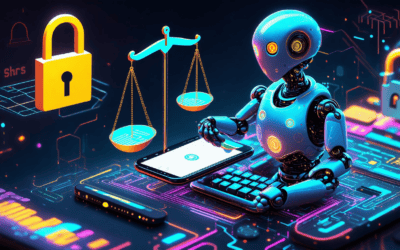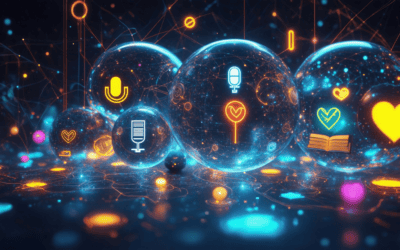In the rapidly evolving landscape of artificial intelligence, chatbot platforms have emerged as game-changers for businesses seeking to enhance customer engagement and streamline operations. As the demand for AI-powered conversation solutions skyrockets, the market has become saturated with options, leaving many wondering: which chatbot platform reigns supreme? This comprehensive comparison delves into the world of AI chatbots, exploring everything from free alternatives to premium solutions, and pitting ChatGPT against its formidable competitors. Whether you’re a small business owner or an enterprise-level decision-maker, our in-depth analysis will guide you through the maze of chatbot pricing models, features, and functionalities to help you select the ideal AI chat solution for your unique needs.
I. The Evolution of AI Chatbots
As the founder of Messenger Bot, I’ve witnessed firsthand the remarkable evolution of AI chatbots. These intelligent conversational agents have transformed the landscape of digital communication, offering businesses unprecedented opportunities to engage with customers efficiently and effectively. The journey of chatbots from simple rule-based systems to sophisticated AI-powered platforms has been nothing short of revolutionary.
At Messenger Bot, we’ve been at the forefront of this evolution, continuously refining our AI-driven chatbot platform to meet the growing demands of businesses across various industries. Our commitment to innovation has allowed us to develop a versatile solution that adapts to the changing needs of digital communication.
A. What are the 4 types of chatbots?
In my experience developing and implementing chatbot solutions, I’ve identified four primary types of chatbots that dominate the current landscape:
- Rule-Based Chatbots: These are the simplest form of chatbots, following predefined rules and offering limited responses based on specific keywords.
- AI-Powered Chatbots: Utilizing machine learning and natural language processing, these bots can understand context and provide more nuanced responses.
- Hybrid Chatbots: Combining rule-based logic with AI capabilities, hybrid bots offer a balance between structured responses and adaptive learning.
- Voice-Enabled Chatbots: These advanced bots integrate speech recognition technology, allowing for voice-based interactions.
At Messenger Bot, we’ve focused on developing AI-powered and hybrid chatbots, as they offer the most flexibility and capability for our clients. Our platform’s pricing reflects the advanced nature of these chatbot types, ensuring businesses can access cutting-edge technology at competitive rates.
B. The rise of AI-powered conversation
The advent of AI-powered conversation has marked a significant milestone in chatbot technology. This advancement has enabled chatbots to engage in more natural, context-aware dialogues, dramatically improving user experience and satisfaction.
Key factors contributing to the rise of AI-powered conversation include:
- Advancements in Natural Language Processing (NLP)
- Integration of machine learning algorithms
- Improved data analysis capabilities
- Enhanced personalization techniques
These developments have allowed platforms like Messenger Bot to offer sophisticated conversational AI solutions that can handle complex queries, learn from interactions, and provide personalized responses.
As we continue to innovate, we’re seeing AI chatbots become increasingly adept at understanding user intent, managing multi-turn conversations, and even detecting emotions. This evolution is not just improving customer service; it’s revolutionizing how businesses interact with their audience across various digital channels.
The rise of AI-powered conversation has also paved the way for multilingual support, a feature we’re particularly proud of at Messenger Bot. Our multilingual chatbot capabilities allow businesses to engage with a global audience, breaking down language barriers and expanding market reach.
As we look to the future, the potential for AI-powered chatbots seems boundless. With ongoing advancements in AI and machine learning, we at Messenger Bot are excited to continue pushing the boundaries of what’s possible in conversational AI, helping businesses create more engaging, efficient, and personalized customer experiences.
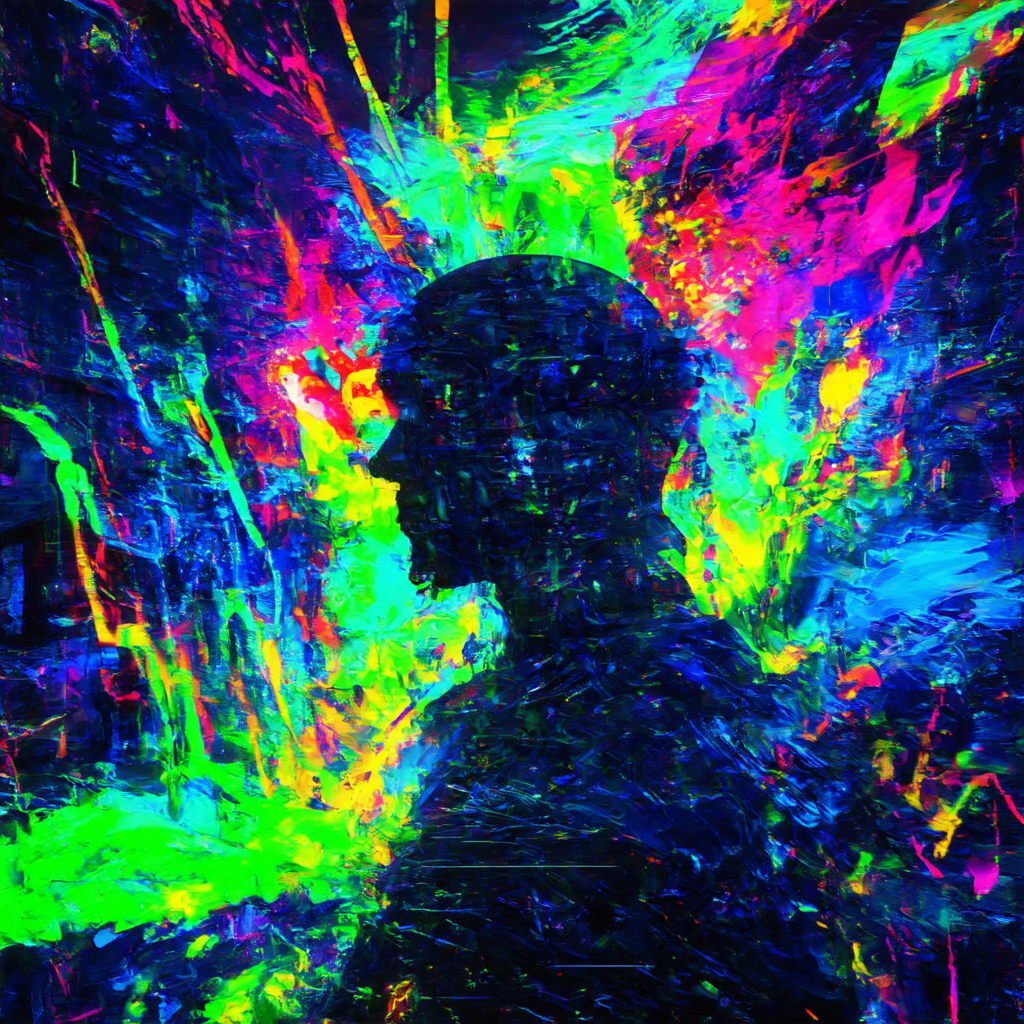
Top Chatbot Platforms: A Comprehensive Comparison
As businesses increasingly recognize the value of AI-powered conversational interfaces, the demand for robust chatbot platforms has skyrocketed. In this comprehensive chatbot platforms comparison, we’ll explore both free and paid options to help you make an informed decision for your business needs.
When comparing chatbot platforms, it’s crucial to consider factors such as ease of use, integration capabilities, customization options, and scalability. Some of the leading platforms in the market include Messenger Bot, Dialogflow, ManyChat, and Chatfuel. Each of these platforms offers unique features and pricing models, catering to different business sizes and industries.
Free chatbot platforms comparison
For businesses looking to dip their toes into the world of chatbots without a significant financial commitment, several free chatbot platforms offer impressive capabilities:
- Messenger Bot Free Trial: Our free trial offer allows you to explore advanced AI-powered features, including multilingual support and workflow automation, without any upfront cost.
- Dialogflow Essentials: Google’s Dialogflow offers a free tier with basic NLP capabilities, suitable for small-scale projects and startups.
- ManyChat Free Plan: This platform provides a free option with limited features, ideal for businesses just starting with chatbot marketing on Facebook Messenger.
- Chatfuel’s Free Plan: Offers basic bot-building tools and is particularly popular among small businesses and individual entrepreneurs.
While these free options provide a great starting point, they often come with limitations in terms of message volume, integrations, or advanced features. As your chatbot needs grow, you may need to consider upgrading to paid plans for more comprehensive functionality.
Best chatbot platforms comparison chart
To help you visualize the differences between top chatbot platforms, here’s a comparison chart of some of the best AI chatbots available:
| Platform | Key Features | Best For | Pricing Model |
|---|---|---|---|
| Messenger Bot | AI-powered responses, multilingual support, workflow automation, e-commerce tools | Businesses of all sizes seeking advanced AI capabilities | Subscription-based with a free trial |
| Dialogflow | Natural Language Processing, multi-platform integration, voice recognition | Developers and enterprises requiring deep customization | Free tier with usage-based pricing for advanced features |
| ManyChat | Visual flow builder, Facebook Ads integration, broadcast messaging | Marketing-focused businesses, especially on Facebook | Freemium with paid plans based on subscribers |
| Chatfuel | No-code builder, Facebook Messenger focus, basic AI capabilities | Small to medium businesses, especially in e-commerce | Freemium with paid plans based on active users |
This chatbot platforms comparison chart provides a quick overview, but it’s essential to delve deeper into each platform’s specific offerings to find the best fit for your unique business needs. Consider factors such as integration with your existing tools, scalability, and the level of AI sophistication required for your use case.
As you evaluate these options, remember that the best chatbot platform for your business will depend on your specific goals, technical expertise, and budget. Our Messenger Bot tutorials can help you get started with implementing advanced chatbot solutions tailored to your needs.
III. Evaluating Chatbot Performance and Capabilities
In the ever-evolving landscape of AI-powered chatbots, evaluating performance and capabilities is crucial for businesses seeking to enhance their customer engagement strategies. As we delve into the intricacies of chatbot platforms comparison, it’s essential to understand what sets apart the best chatbots from the rest.
At Messenger Bot, we’ve observed that the most effective AI chatbots excel in natural language processing, context retention, and seamless integration across multiple platforms. These features contribute significantly to creating a more human-like interaction, which is paramount for customer satisfaction and engagement.
A. Which chatbot is best?
Determining the best chatbot depends on specific business needs and use cases. However, several platforms consistently rank high in chatbot comparisons due to their advanced features and performance:
- Messenger Bot: Our platform offers a sophisticated AI-driven solution that excels in automating customer interactions across various channels, including Facebook and Instagram.
- Dialogflow: Google’s offering is known for its robust natural language understanding capabilities.
- IBM Watson Assistant: Renowned for its enterprise-grade AI and machine learning capabilities.
- ManyChat: Popular for its ease of use and strong focus on marketing automation.
Each of these platforms has its strengths, but we pride ourselves on Messenger Bot’s ability to provide a comprehensive solution that combines ease of use with powerful AI capabilities.
B. AI chatbot comparison: Features and functionalities
When conducting an AI chatbot comparison, it’s crucial to consider various features and functionalities:
- Natural Language Processing (NLP): The ability to understand and respond to human language naturally is a cornerstone of advanced AI chatbots.
- Multi-channel support: Top chatbots can seamlessly operate across various platforms, including websites, social media, and messaging apps.
- Customization and scalability: The best chatbot platforms allow for extensive customization to match brand voice and scalability to handle growing customer bases.
- Integration capabilities: Ability to integrate with existing CRM systems, databases, and other business tools is crucial for maximizing efficiency.
- Analytics and reporting: Comprehensive analytics help businesses understand customer interactions and improve their chatbot strategies.
At Messenger Bot, we’ve incorporated all these features into our platform, ensuring that businesses can leverage the full potential of AI-driven customer engagement. Our subscription costs are competitive, offering excellent value for the advanced functionalities we provide.
While platforms like Botpress and Rasa offer open-source alternatives with high customization potential, our solution combines ease of use with powerful AI capabilities, making it an ideal choice for businesses looking to quickly implement and scale their chatbot strategies.
As the AI chatbot landscape continues to evolve, staying informed about the latest advancements and conducting regular chatbot platform comparisons will be key to maintaining a competitive edge in customer engagement and support.
ChatGPT and Its Competitors
In the ever-evolving landscape of AI chatbots, ChatGPT has emerged as a frontrunner, but it’s not without worthy competitors. As we dive into the chatbot platforms comparison, it’s crucial to understand how ChatGPT stacks up against other AI chatbots and explore the alternatives that might better suit specific needs.
Which chatbot is better than ChatGPT?
While ChatGPT has set a high bar in the AI chatbot arena, several platforms offer unique features that may outperform it in certain aspects. For instance, Messenger Bot provides a comprehensive suite of tools specifically designed for business automation and customer engagement across multiple channels. Unlike ChatGPT, which primarily focuses on general conversation, Messenger Bot excels in creating tailored customer experiences and automating complex workflows.
Another strong contender is Google’s Bard, which leverages Google’s vast knowledge base to provide up-to-date information and perform real-time web searches. This capability gives Bard an edge when it comes to current events and factual queries.
Anthropic’s Claude is also gaining traction as a ChatGPT alternative, boasting enhanced safety features and a more nuanced understanding of context. For businesses prioritizing ethical AI use, Claude might be the preferred choice.
It’s important to note that the “best” chatbot often depends on the specific use case. For instance, our AI-powered platform might be the ideal solution for businesses looking to automate customer service across social media platforms and websites, offering features like multilingual support and e-commerce integration that ChatGPT doesn’t provide.
Chatbot alternatives and ChatGPT competitors
The chatbot ecosystem is rich with alternatives, each bringing its unique strengths to the table. Here’s a brief overview of some notable ChatGPT competitors:
- Messenger Bot: Specializes in business automation and customer engagement, offering a comprehensive platform for social media management and e-commerce integration.
- Microsoft Bing Chat: Integrates with Microsoft’s search engine, providing a blend of conversational AI and web search capabilities.
- IBM Watson Assistant: Offers robust enterprise-level solutions with a focus on industry-specific knowledge and integrations.
- Replika: An AI companion focused on emotional support and personal conversations, filling a niche that ChatGPT doesn’t address.
- Brain Pod AI: Brain Pod AI offers a suite of AI-powered tools, including a multilingual AI chat assistant and an AI writer, catering to diverse content creation needs.
When considering chatbot alternatives, it’s essential to evaluate your specific requirements. For instance, if you’re looking to enhance your social media engagement, a platform like Messenger Bot that specializes in social network automation might be more suitable than a general-purpose AI like ChatGPT.
Moreover, factors such as customization options, integration capabilities, and pricing models play crucial roles in selecting the right chatbot platform. Our flexible pricing options cater to businesses of all sizes, ensuring you get the features you need without breaking the bank.
As the AI chatbot landscape continues to evolve, staying informed about the latest developments and conducting thorough chatbot comparisons will be key to making the best choice for your organization’s needs. Whether you’re looking to streamline customer service, boost sales, or enhance user engagement, there’s likely a chatbot solution tailored to your specific goals.

V. Selecting the Ideal Chatbot Solution
When it comes to chatbot platforms comparison, selecting the right solution for your business is crucial. With the rapid evolution of AI chatbots, it’s essential to consider various factors to ensure you choose a platform that aligns with your specific needs and industry requirements.
At Messenger Bot, we understand the importance of finding the perfect chatbot solution. Our AI-powered platform offers a comprehensive suite of features designed to enhance customer engagement and streamline communication across multiple channels. However, we also recognize that different businesses may have unique requirements, so let’s explore some key considerations when selecting a chatbot platform.
A. What is the best platform to build a chatbot?
The best platform to build a chatbot depends on your specific needs, technical expertise, and budget. While we believe our Messenger Bot platform offers an excellent balance of features and ease of use, it’s important to consider other options in the market.
For businesses looking for a user-friendly interface and quick setup, platforms like ManyChat and Chatfuel are popular choices. These platforms offer drag-and-drop builders and pre-built templates, making it easy for non-technical users to create functional chatbots.
If you require more advanced AI capabilities and natural language processing, solutions like Dialogflow by Google or IBM Watson might be more suitable. These platforms offer powerful machine learning algorithms and can handle complex conversations.
For developers who prefer more control and customization, open-source frameworks like Rasa or Botpress provide flexibility and scalability. These platforms allow for deep customization and integration with existing systems.
At Messenger Bot, we strive to offer the best of both worlds – an intuitive interface for quick deployment and advanced AI capabilities for more complex use cases. Our platform includes features like multilingual support, workflow automation, and seamless integration with popular messaging channels, making it a versatile choice for businesses of all sizes.
B. Best AI chatbot platforms for different industries
Different industries have unique requirements when it comes to chatbot functionality. Here’s a breakdown of some of the best AI chatbot platforms for various sectors:
1. E-commerce: For online retailers, platforms that offer product recommendation engines and seamless integration with shopping carts are crucial. Our Messenger Bot platform excels in this area, offering e-commerce tools that can boost sales and improve customer experience.
2. Healthcare: In the healthcare industry, HIPAA compliance and the ability to handle sensitive information are paramount. Platforms like HealthTap and Sensely offer specialized chatbots designed for patient engagement and medical triage.
3. Financial Services: Banks and financial institutions require chatbots with robust security features and the ability to handle complex transactions. Platforms like Kasisto and Personetics offer AI-powered solutions tailored for the finance sector.
4. Travel and Hospitality: Chatbots in this industry need to handle booking inquiries, provide real-time information, and offer personalized recommendations. Platforms like Mindsay specialize in travel-specific chatbot solutions.
5. Real Estate: In the real estate sector, chatbots that can handle property inquiries and schedule viewings are essential. Our Messenger Bot platform offers features that are particularly useful for real estate lead generation and customer engagement.
While industry-specific platforms can offer tailored solutions, versatile platforms like Messenger Bot can adapt to various sectors. Our AI-powered chatbot can be customized to meet the unique needs of different industries, from e-commerce to customer support across various sectors.
When selecting an AI chatbot platform, consider factors such as ease of use, scalability, integration capabilities, and customer support. It’s also crucial to evaluate the platform’s ability to handle your specific use cases and provide a seamless customer experience.
Remember, the best chatbot platform is one that not only meets your current needs but can also grow with your business. At Messenger Bot, we’re committed to continually enhancing our platform to stay ahead of industry trends and provide cutting-edge AI chatbot solutions for businesses of all types and sizes.
VI. Cost Considerations in Chatbot Implementation
When implementing a chatbot solution, understanding the various pricing models and subscription costs is crucial for businesses to make informed decisions. At Messenger Bot, we believe in providing transparent and competitive pricing options to suit diverse needs and budgets.
A. Chatbot pricing models and subscription costs
Chatbot pricing models vary widely across platforms, reflecting the diverse range of features and capabilities offered. Common pricing structures include:
1. Freemium: Many platforms, including Messenger Bot, offer a free tier with basic features, allowing businesses to test the waters before committing to a paid plan.
2. Per-user pricing: Some providers charge based on the number of users or agents using the chatbot system.
3. Message-based pricing: Costs are calculated according to the volume of messages processed by the chatbot.
4. Feature-based tiers: Platforms often offer different subscription levels with increasing features and capabilities at higher price points.
5. Custom enterprise solutions: For large-scale implementations, many providers offer tailored pricing based on specific business needs.
At Messenger Bot, we offer flexible pricing plans designed to accommodate businesses of all sizes. Our subscription costs are competitive, ensuring that you get value for your investment while accessing advanced AI-powered features.
B. Chatbot price comparison across platforms
When comparing chatbot prices across different platforms, it’s essential to consider not just the base cost but also the features included and the potential return on investment. Here’s a brief comparison of some popular chatbot platforms:
1. Messenger Bot: Our pricing starts at a competitive rate, offering a robust set of features including AI-driven responses, workflow automation, and multilingual support. We provide excellent value for businesses looking for a comprehensive chatbot solution.
2. MobileMonkey: Offers a free plan with basic features, with paid plans starting around $119/month for more advanced capabilities.
3. ManyChat: Provides a free plan for Facebook Messenger bots, with premium features starting at approximately $15/month.
4. Chatfuel: Offers a free tier for up to 50 users, with paid plans beginning at about $15/month for additional features and higher user limits.
5. Dialogflow (by Google): Provides a free tier with limited queries, while the enterprise version is priced based on usage.
It’s important to note that while some platforms may appear cheaper at first glance, they might lack advanced features or have usage limitations that could result in higher costs as your needs grow. At Messenger Bot, we strive to offer a balance of affordability and comprehensive functionality.
When evaluating chatbot platforms, consider factors beyond just price, such as:
– Ease of use and setup
– Integration capabilities with existing systems
– Scalability as your business grows
– Quality of AI and natural language processing
– Customer support and resources
By carefully assessing these factors alongside pricing, you can choose a chatbot solution that not only fits your budget but also meets your long-term business objectives. We encourage you to explore our free trial offer to experience firsthand how Messenger Bot can provide value to your business while keeping costs manageable.
VII. Future Trends in AI Chatbot Technology
As we look ahead, the future of AI chatbot technology is brimming with exciting possibilities. The rapid advancements in artificial intelligence and natural language processing are set to revolutionize the way businesses interact with their customers. At Messenger Bot, we’re constantly innovating to stay at the forefront of these developments, ensuring our platform evolves alongside the latest trends.
One of the most significant trends we’re observing is the increasing sophistication of AI chatbots. These advanced systems are becoming more adept at understanding context, emotion, and nuance in human communication. This evolution is closing the gap between human-like interactions and automated responses, leading to more satisfying customer experiences.
Another key trend is the integration of chatbots with other emerging technologies. For instance, the combination of chatbots with augmented reality (AR) and virtual reality (VR) is opening up new possibilities for immersive customer support and interactive product demonstrations. This synergy between AI chatbots and other cutting-edge technologies is creating unique opportunities for businesses to engage with their customers in novel and exciting ways.
A. Emerging chatbot platforms and innovations
The chatbot landscape is witnessing the rise of new platforms and innovative features that are reshaping the industry. Some of the emerging trends include:
- Voice-activated chatbots: With the increasing popularity of smart speakers and voice assistants, chatbots are evolving to handle voice commands and provide audio responses. This trend is making chatbots more accessible and user-friendly, especially for hands-free interactions.
- Emotion AI: Advanced chatbots are now being equipped with emotion recognition capabilities. These systems can detect and respond to users’ emotional states, allowing for more empathetic and personalized interactions.
- Multilingual support: As businesses expand globally, multilingual chatbots are becoming increasingly important. These advanced systems can seamlessly switch between languages, breaking down communication barriers and enabling businesses to serve a diverse customer base.
- Predictive analytics: Chatbots are becoming more proactive by leveraging predictive analytics. They can anticipate customer needs based on historical data and behavior patterns, offering solutions before issues arise.
At Messenger Bot, we’re excited to incorporate these innovations into our platform, ensuring our customers have access to the most advanced chatbot technologies available.
B. The impact of AI advancements on chatbot development
The continuous advancements in AI are having a profound impact on chatbot development. These improvements are not only enhancing the capabilities of chatbots but also expanding their applications across various industries. Some key impacts include:
- Enhanced natural language understanding: AI advancements are enabling chatbots to better comprehend complex queries and context, leading to more accurate and helpful responses.
- Improved personalization: AI-powered chatbots can now analyze vast amounts of data to create highly personalized experiences for each user, tailoring responses and recommendations based on individual preferences and behavior.
- Seamless integration with backend systems: Advanced AI is facilitating smoother integration between chatbots and various backend systems, allowing for more efficient data retrieval and processing.
- Continuous learning and improvement: Modern AI chatbots can learn from each interaction, continuously improving their performance and accuracy over time.
As these AI advancements continue to shape the chatbot landscape, we at Messenger Bot are committed to staying ahead of the curve. We’re constantly updating our platform to incorporate the latest AI technologies, ensuring our customers have access to cutting-edge chatbot solutions that can drive their business forward.
The future of AI chatbot technology is undoubtedly exciting, with innovations that promise to transform customer interactions and business operations. As we continue to explore and implement these advancements, we’re confident that chatbots will play an increasingly crucial role in shaping the future of customer engagement and support.
